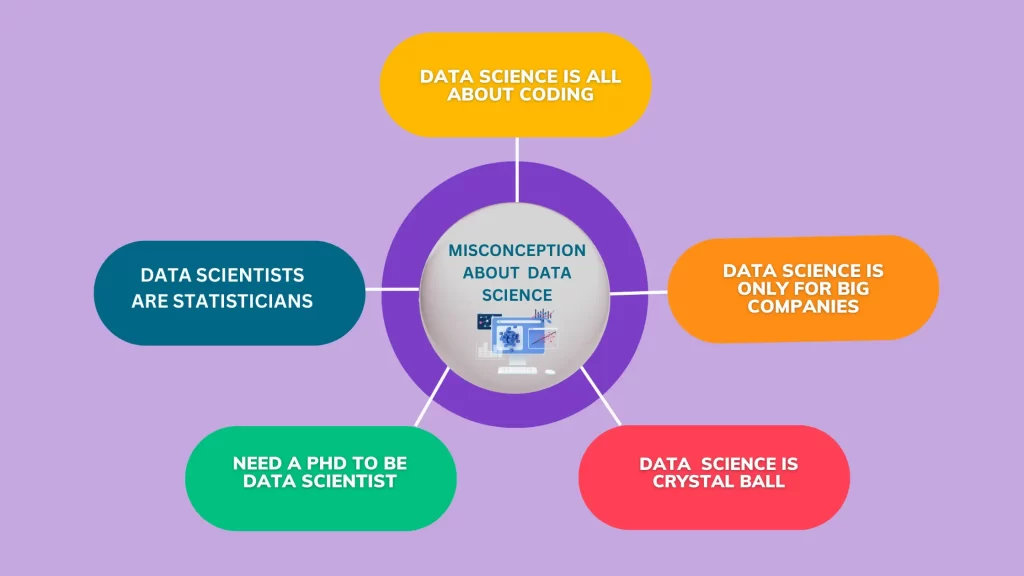Data science is a rapidly evolving place that has received vital interest in recent years. However, irrespective of its developing recognition, many misconceptions persist approximately what data technology clearly entails. These misunderstandings can motivate unrealistic expectations, misinformed choices, and a fashionable misalignment between what data science can supply and what humans expect from it. In this blog, we will address some of the most commonplace misconceptions about data science and highlight the importance of choosing the right data science course to gain a clear and accurate understanding of the field.

1: Data Science is All About Coding
While coding is undoubtedly an important talent for data scientists, it is now not the sole requirement. Understanding the business problem, data cleaning, exploration, and storytelling are similarly important. Data science is as plenty an art as it’s far a science, requiring a blend of technical proficiency and business acumen.
2: Data Scientists Are Statisticians
While statistics is an essential component of data science, it is now not the complete picture. Data scientists need to be gifted in numerous techniques, along with machine learning, data mining, and database management. The function entails a broader spectrum of skills than just statistical analysis.
3: Data Science is Only for Big Companies
This is a misconception. Businesses of all sizes can benefit from data science. Even small companies can leverage data to understand their consumers better, optimise operations, and make knowledgeable decisions. The key is to focus on relevant data and extract meaningful insights.
4: Data Science is a Crystal Ball
Data science can deliver valuable insights and predictions, however, it’s not a magic tool. It’s based totally on historical data and styles, and unexpected events can effect the accuracy of predictions. Data science must be visible as a tool to assist decision-making, not as a definitive solution.
5: You Need a PhD to Be a Data Scientist
While a PhD may be beneficial, it’s not a mandatory requirement. Many successful data scientists have undergraduate or master’s degrees. The industry values sensible abilities and enjoys greater than academic qualifications.
Check out the video to understand Misconceptions about Data Science
Conclusion,
In conclusion, data science encompasses a complex area that demands a blend of technical abilities, business insight, and analytical reasoning. By debunking those common misconceptions, we hope to offer a clearer picture of what data science is and the various range of abilities it encompasses. For those looking to learn data science, consider our GalTech School, which provides comprehensive programs that cover the essential skills needed to thrive in this dynamic field.







